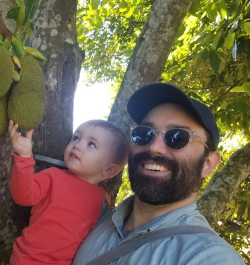Research Workshop: "Fairness and Machine Fairness"
Dr. Clinton Castro (Florida International University)
Friday, January 22nd, 2021 12:10pm-2:00pm via Zoom.

Abstract:
Prediction-based decisions, which are often made by utilizing the tools of machine learning, influence nearly all facets of modern life. Ethical concerns about this widespread practice have given rise to the young field of fair machine learning and a number of fairness measures--mathematically precise definitions of fairness that purport to determine whether a given prediction-based decision system is fair. Following Binns (2018), we take “fairness” in this context to be a placeholder for a variety of normative egalitarian considerations. We explore a few fairness measures to suss out their egalitarian roots and evaluate them, both as formalizations of egalitarian ideas and as assertions of what fairness demands of predictive systems. We pay special attention to a recent and popular fairness measure, counterfactual fairness, which holds that a prediction about an individual is fair if it is the same in the actual world and any counterfactual world where the individual belongs to a different demographic group (cf. Kusner et al. 2018).
Bio:
Clinton Castro is an assistant professor in the Department of Philosophy at Florida International University. He received his PhD from the University of Wisconsin-Madison in 2018. His published work focuses on issues in ethics and epistemology, mostly within the context of emerging technologies. His forthcoming book, Algorithms & Autonomy: The Ethics of Automated Decision Making (co-authored with Adam Pham and Alan Rubel), examines how algorithms in criminal justice, education, housing, elections and beyond affect autonomy, freedom, and democracy.
All Research workshops will be held via Zoom for the 2020-2021 school year. Zoom links are available on the Philosophy Major and Minor Canvas site.